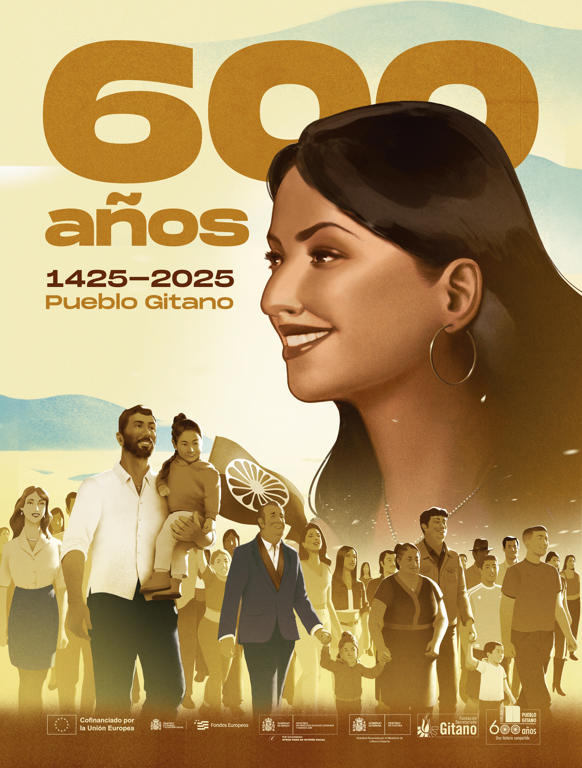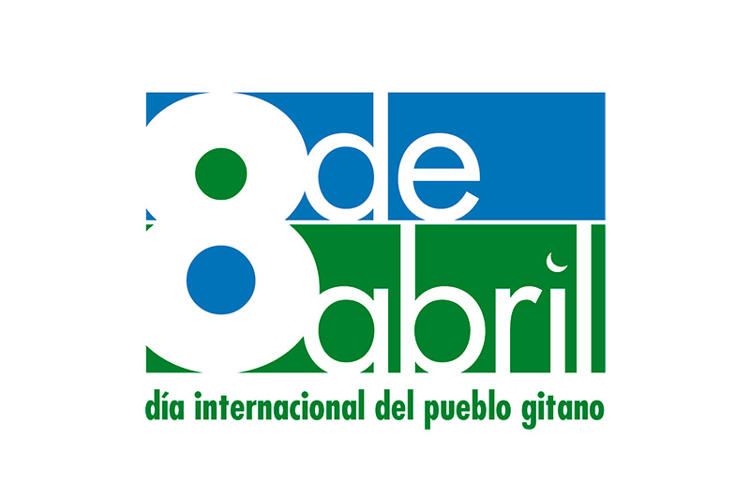The Fundación Secretariado Gitano calls for a comprehensive law for the recognition, equality and promotion of the Roma people [editar]

The Fundación Secretariado Gitano (FSG) celebrates 8th April 2025 in a year of great historical relevance, as an opportunity to show pride in being Roma and to claim the right to recognition and equality.
The celebration of 8 April recalls the history of the Roma people and pays tribute to the Roma victims of the various persecutions over the centuries. A celebration that commemorates the 1st World Roma Congress, held in London on 8 April 1971, at which the flag (blue and green, with a red wheel) and the anthem Gelem, Gelem were adopted as their own symbols.

For Sara Giménez, director general of the FSG, ‘this year, 2025, the International Roma Day has a special significance in Spain. It is the time to commit as a society, as a country, to full equality for Roma. Equality based on the recognition of diversity and the value of a cultural identity of their own, but which forms part of the shared history and culture of our country’.
For a comprehensive law for the recognition, equality and promotion of the Roma people. Despite progress, many Roma continue to lag behind and at a great distance from the rest of society in the enjoyment of fundamental rights such as employment, education, decent housing and the right not to be discriminated against. The situation of widespread poverty and the inequality gaps are so serious that a decisive, specific and structural institutional response is required. Added to this is the situation of anti-Roma rejection and discrimination that is so widespread in our society, and which limits people's development and the exercise of their rights. The guarantee of equal opportunities and equal treatment for Roma must be an effective commitment of the public authorities.
On the other hand, this year, more than ever, it is important that the Roma people, their history and culture, are known and their contributions to the construction of this country are recognised. It is time, for example, for the history and culture of the Roma people to be effectively incorporated into the educational curriculum.
‘That is why, at the Fundación Secretariado Gitano’, Giménez points out, ’we believe that it is time to make a qualitative leap in the way we deal with the situation of the Romany population, it is time to move forward with a legislative proposal with a comprehensive law for the recognition, equality and promotion of the Romany population.
The history of the Romany population is marked by more than 100 anti-Roma pragmatics. Until the approval of the Constitution in 1978, when legislation was passed on the Romany population, it was for their persecution, extermination or assimilation. The Constitution means the formal equality of all citizens, and one of the most recent major advances has been the incorporation of anti-Gypsyism into the Penal Code. It is an ideal moment of maturity in our society to reach agreement on comprehensive legislation that, for the first time, promotes equality and recognition of the Roma people with sensible and consensual measures.
For the director general, ‘the current policy framework is insufficient; we need a specific legislative framework that provides guarantees, comprehensiveness and sustainability to the policies and measures necessary for the real and effective equality of the Roma people. There are references to specific laws for other groups that have achieved a legal framework of protection in response to factors of inequality or discrimination. In the case of the Romany population, the combination of factors that entail the violation of rights is multiple’, she concludes.
Identity, culture, resistance
The Fundación Secretariado Gitano takes advantage of this date to launch pieces to raise social awareness and highlight the value of Roma culture. This year we have the commemorative poster and the cover of the exhibition ‘600 years of the Roma people, a shared history’. We also launched an animated video piece based on the illustration of the poster, to share on the web, WhatsApp and social networks.
On the occasion of 8 April, the Fundación Secretariado Gitano is also disseminating a communiqué prepared by the Roma Participation Group, which this year has the slogan ‘Identity, culture and resistance’.
During these days the FSG territorial teams, in addition to participating in the institutional events, will organise visits to the exhibition ‘600 years, a shared history’ and a performance of a short play by young Roma participants in the foundation's programmes. The script and direction by Francisco Suárez, stage director, playwright, writer and Roma intellectual, presents the historical moment of 12 January 1425. The Count of Egypt Minor and the caravan carrying his ‘people and families’ received permission from King Alfonso V of Aragon to cross his lands on pilgrimage. This is the first document that attests to the presence of Roma on the Iberian Peninsula (even before the Spanish state as such existed).

